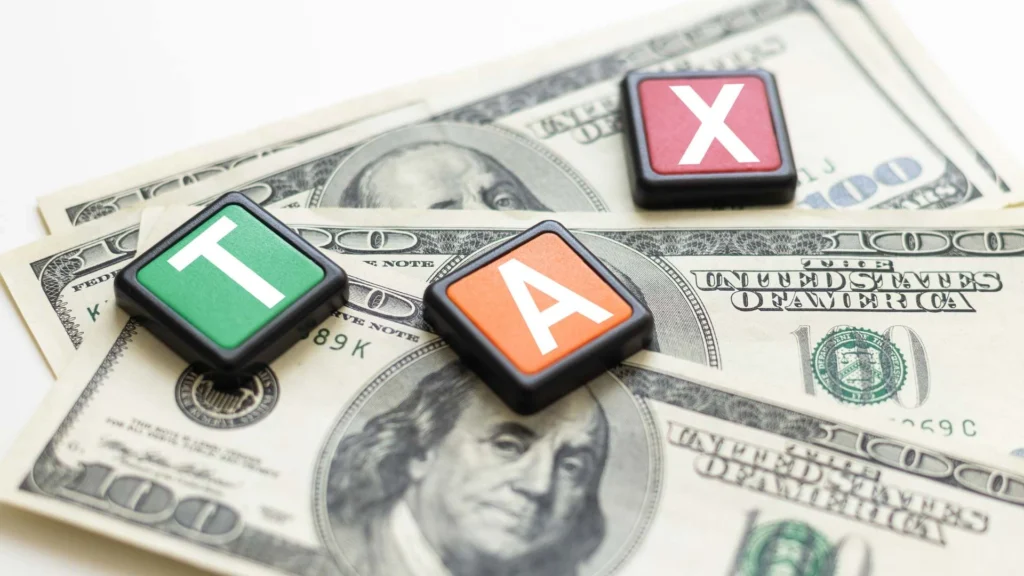Does a Minor Pay Taxes? Taxes are often thought of as something only adults worry about. But the truth is that minors can have tax responsibilities too.
Whether a child earns money from a summer job, a teen works part-time after school, or a young person earns income online, taxes may apply even if they are under 18.
This guide explains when minors have to pay taxes, what kinds of income are taxable, how filing works for kids and teens, and what parents and guardians should know.
Understanding these rules early can prevent confusion and help young earners build good financial habits.
What Is Considered a Minor for Tax Purposes?
For tax purposes, a minor is generally someone under the age of 18. However, age alone does not determine whether someone must pay taxes or file a tax return.
The IRS focuses on income, not age. A minor of any age may have tax obligations if they earn or receive enough taxable income.
Does A Minors Pay Taxes?

Yes, minors can be required to pay taxes. There is no rule that automatically exempts children or teenagers from taxation.
Whether a minor pays taxes depends on:
- The type of income they receive
- How much income they earn
- Whether taxes were withheld
- Whether they are claimed as a dependent
Some minors owe no tax at all, while others may need to file a return and pay taxes just like adults.
Types of Income Minors Can Earn
Understanding income types is key to knowing whether taxes apply.
Earned Income
Earned income is money received from working. Common examples for minors include:
- Wages from part-time or summer jobs
- Babysitting or lawn care income
- Earnings from freelancing or online work
- Tips
Earned income is generally taxable, though standard deductions may reduce or eliminate the amount owed.
Unearned Income
Unearned income is money not earned from work. For minors, this may include:
- Interest from savings accounts
- Dividends from investments
- Capital gains
- Trust income
Unearned income is taxed differently than earned income and can trigger special rules.
When Does a Minor Need to File a Tax Return?
A minor must file a federal tax return if their income exceeds certain thresholds.
Filing Requirements for Earned Income
If a minor’s earned income exceeds the standard deduction for dependents, they generally must file a tax return.
Even if income is below the filing threshold, filing may still be beneficial to claim a refund of withheld taxes.
Filing Requirements for Unearned Income
Minors with unearned income above a relatively low threshold may need to file a return, even if they did not work.
This is especially important for children with investments or savings accounts generating interest.
Filing for Self-Employed Minors
Minors who earn income through self-employment, such as freelancing, content creation, or small businesses, have additional responsibilities.
They may be required to:
- File a tax return
- Pay self-employment tax
- Make estimated tax payments
Age does not exempt a self-employed minor from these rules.
Do Minors Pay Payroll Taxes?
Minors who work as employees typically have taxes withheld from their paychecks.
Federal Income Tax Withholding
Employers may withhold federal income tax from a minor’s wages. If the minor earns little enough, they may receive a full refund when filing a return.
Social Security and Medicare Taxes
Most minors pay Social Security and Medicare taxes, just like adult employees. However, there are exceptions.
For example:
- Children working for a parent’s sole proprietorship may be exempt from these taxes
- Certain family employment situations have special rules
Outside of these exceptions, payroll taxes usually apply regardless of age.
The Kiddie Tax Explained
The kiddie tax is a special rule designed to prevent parents from shifting investment income to their children to avoid taxes.
How the Kiddie Tax Works
If a minor has unearned income above a certain amount, part of that income may be taxed at the parent’s tax rate instead of the child’s lower rate.
This rule generally applies to:
- Children under age 18
- Some full-time students under age 24
The kiddie tax does not apply to earned income.
Can Parents Claim a Minor as a Dependent?
In many cases, parents can claim their child as a dependent on their tax return.
Claiming a minor as a dependent affects:
- Eligibility for certain credits
- The child’s standard deduction
- Who can claim education-related benefits
Even if a minor files their own tax return, they may still be claimed as a dependent.
Who Files the Tax Return for a Minor?
When a minor must file a tax return, the process is similar to an adult filing, but there are a few important details to understand.
A minor can file their own tax return, but in many cases a parent or guardian will prepare and submit it on the child’s behalf.
The key factor is who is responsible for ensuring the return is accurate and filed on time.
Here’s how it typically works:
1. The Minor Files Their Own Return
A minor who earns taxable income may file a tax return in their own name. This is common when:
- The child has earned income from a job
- The child has unearned income from investments
- The child is a self-employed minor with business income
- The child has a filing requirement based on income thresholds
When filing, the return is completed using the child’s Social Security number and the child’s name. The minor can sign the return themselves if they are old enough and mentally capable.
2. A Parent or Guardian Files on Behalf of the Minor
If the child is too young to handle filing or needs assistance, a parent or guardian can prepare and file the return for them. The parent acts as the responsible party, but the return is still filed under the child’s name and Social Security number.
This is often the case when:
- The child is a young teenager or younger
- The family prefers the parent to manage finances
- The child has complex income or deductions
- The child is a dependent and the parent wants to ensure accuracy
3. Filing as a Dependent vs Filing Independently
Even when a minor files their own return, they may still be claimed as a dependent on their parent’s tax return. This is common and does not prevent the child from filing.
Key points include:
- Being claimed as a dependent may limit the child’s standard deduction
- The parent’s return typically includes the child as a dependent
- The child’s return is still filed separately if required
4. When a Parent Must Sign the Child’s Return
For some minors, especially younger children, a parent may be required to sign the return. The IRS allows parents to sign on behalf of a minor who is under age 18 or otherwise unable to sign.
This ensures:
- The return is legally valid
- The parent accepts responsibility for accuracy
- The IRS can contact the responsible party if needed
5. Using Form 8814 for Certain Child Income
In some cases, parents can elect to include a child’s investment income on their own tax return using Form 8814. This can simplify filing but may not always be the best option.
This option is typically used when:
- The child has unearned income (like interest or dividends)
- The income is under a certain threshold
- The parent wants to handle reporting instead of filing a separate return
This election should be made carefully, as it may increase the parent’s tax liability.
What About Electronic Filing?
Most minors can file electronically if they meet the requirements for e-filing. This is usually the fastest way to file and can speed up refunds. If a parent is filing on behalf of the child, they may use tax software or a tax professional to submit the return.
A minor can file their own tax return, but a parent or guardian can also prepare and file it on their behalf. The key is that the return is filed under the child’s name and Social Security number, and the responsible party ensures it is accurate and timely.
If you’re unsure whether a minor must file or how to handle filing, consulting a tax professional can help avoid mistakes and ensure compliance.
Common Situations Where Minors Pay Taxes
Some scenarios where minors commonly have tax obligations include:
- Teenagers with part-time jobs
- Children earning money through social media or online platforms
- Minors with investment accounts
- Young athletes, performers, or influencers
- Teens running small businesses or side hustles
In these cases, filing a return helps ensure compliance and may result in refunds.
Why Filing a Tax Return Can Be Beneficial for Minors
Even if a minor does not owe taxes, filing a return can still be useful.
Benefits include:
- Getting a refund of withheld taxes
- Creating an official income record
- Learning financial responsibility early
- Avoiding future tax issues
Filing can also be required for scholarship or financial aid applications later on.
Managing Cash Flow and Taxes for Teen Earners
Teenagers earning income may not expect taxes to reduce their take-home pay. This can be especially challenging for self-employed minors who must pay taxes out of pocket.
When cash is needed to cover short-term expenses or tax obligations, flexible tools can help. Beem Everdraft™ allows access to $10 to $1,000 in instant cash advance when cash is needed.
In addition to an unlocked Everdraft™ amount, the Beem boost feature lets users unlock additional cash on top of their existing Everdraft™ amount. This can be useful for covering urgent expenses while managing irregular income.
State and Local Taxes for Minors
In addition to federal taxes, minors may owe:
- State income tax
- Local or municipal taxes
These rules depend on where the child lives and earns income. Some states have no income tax, while others apply the same rules to minors as adults.
Common Myths About Kids and Taxes
There are several misconceptions about minors and taxes.
Common myths include:
- Kids never pay taxes
- Minors cannot file tax returns
- Income under 18 is tax-free
- Parents automatically handle all taxes
Understanding the facts helps families avoid mistakes.
Teaching Kids and Teens About Taxes
Taxes can be a valuable learning opportunity.
Parents can help minors by:
- Explaining paycheck deductions
- Teaching the difference between gross and net pay
- Encouraging saving for taxes
- Involving teens in filing their first return
Early education builds confidence and financial literacy.
Final Thoughts
So, does a minor pay taxes? Sometimes, yes.
Age alone does not determine tax responsibility. What matters is how much income a child earns and what type of income it is. Many kids and teens owe no tax, but others may need to file returns and pay federal, state, or self-employment taxes.
By understanding the rules, tracking income, and filing when required, minors and their families can stay compliant and avoid surprises. Learning how taxes work early sets the foundation for smart financial decisions well into adulthood.















































